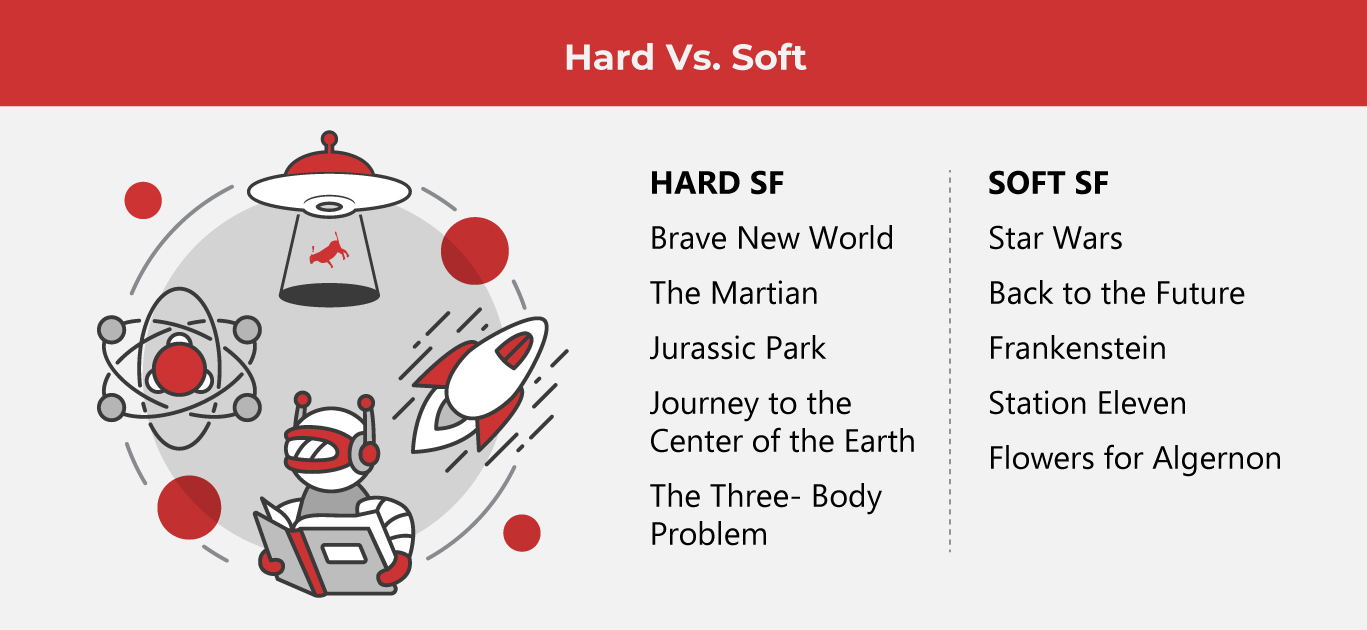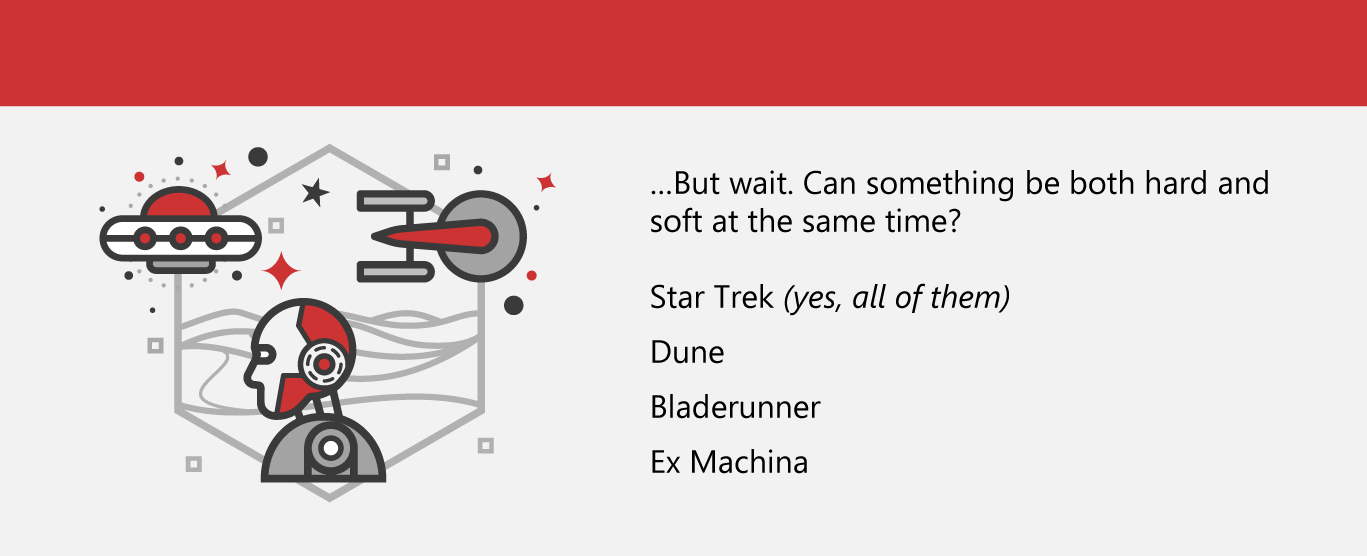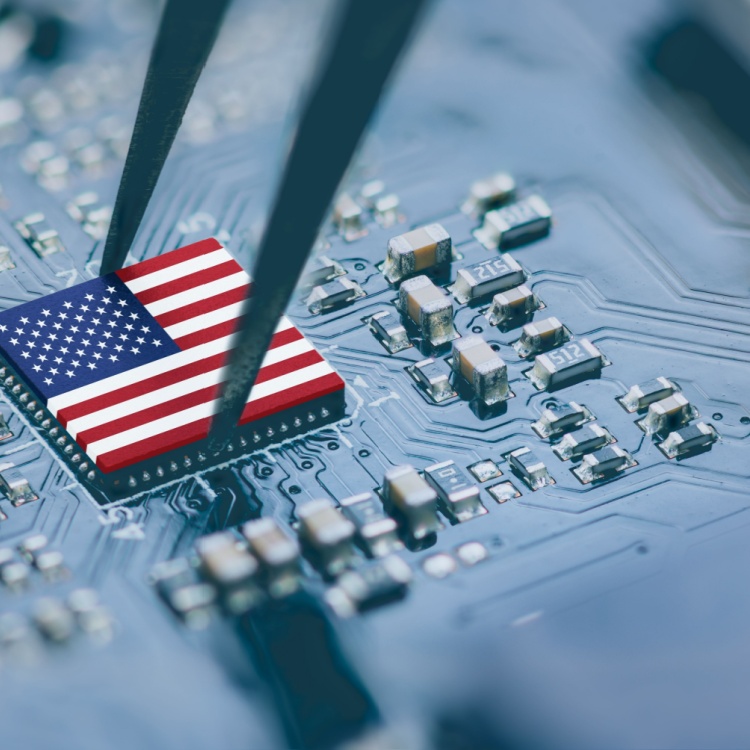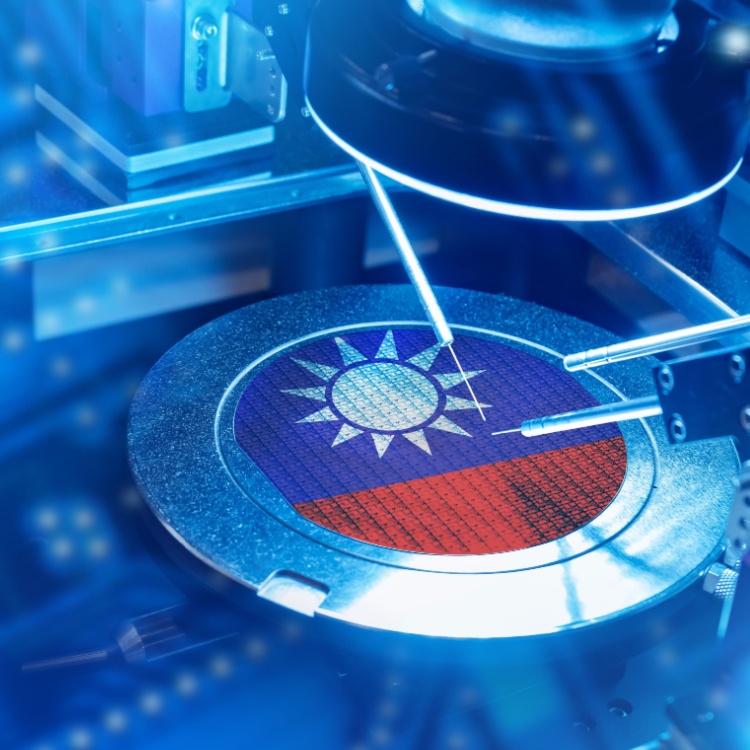Are You More a Hard Sci-Fi Fan or a Soft Sci-Fi Fan?

A beloved and popular genre in both movies and books, science fiction runs the gamut from futuristic worlds to robots to as-yet-to-be-discovered technologies. Today, fans online are talking about whether their faves fall under “hard sci-fi” or “soft sci-fi”. How can we tell the difference?
Science fiction used to be a very niche realm appealing to readers interested in pushing the boundaries of what science and technology are capable of, and the possible consequences of its discoveries, advancements, abuses, and misuses. Many SF stories can be intimidating to get into because of the language used, subject matter, and concepts at the center of the stories. (Also read: The Best Post-apocalyptic Sci-Fi Shows to Binge Right Now)
On the other hand, science fiction movies are always a hit at the cinema. Featuring special effects both practical and digital, and action scenes that take audience members to the edge of their seats, new worlds and universes become as real as we’ve only once imagined them to be.
There’s an active discussion online about the difference between “hard” SF and “soft” SF, with many fans and creators weighing in on what distinguishes the two classifications. Here’s what we found. 
Hard data, cold science
“Hard SF” has been described as science fiction that puts science and technology at the center of the story. “Hard” SF is concerned with physical and observable sciences such as biology, zoology, electronics, robotics, and mathematics. The science used in these stories is credible, and grounded in logic, and it’s mainly what drives the stories forward.
There are no fantastic elements in “hard SF”. “The math is mathing”, meaning, the science used to drive the world-building of the story forward, whether it already exists or not in the real world, could work and can be explained by the creator. These elements are integral to the plot of the stories.
Some examples of “hard” SF are the works of Aldous Huxley, Isaac Asimov, and Arthur C. Clarke.
Many cyberpunk stories can be considered “hard SF”. “Ghost in the Shell” is an oft-cited example.
Soft cells and a beating heart
On the other hand, “soft” SF is considered by some to be “gateway” stories for those new to the genre because it’s not as intimidating. “Soft” SF is more concerned with human sciences such as psychology and political science, as well as the relationship between the characters and how they navigate the reality they’re in.
Space operas such as the “Star Wars” saga fall into “soft” SF. The cult favorite British TV series “Dr. Who” and the time-travel 80s classic “Back to the Future” also make good examples of what “soft” SF is.
Some say that because “soft” SF is more character and relationship-driven as opposed to the facts and mechanics of science in “hard” SF, “soft” SF is more approachable for those who might be reluctant to get into “hard” SF. 
But wait…some SF can also be both!
To make things more interesting, there are SF stories that can fall into both classifications! Stories where “the math is mathing”, but at the same time, explore relationships and are metaphors for our current reality.
The enduring appeal of “Star Trek” and all its permutations, be it its movies or its many TV series is that the technology that makes the universe work is grounded in real scientific concepts and drives plot points forward. There are plenty of science elements put front and center in the show that make it exciting.
At the same time, many episodes of the original “Star Trek” are about how the crew of the Starship Enterprise relate to other forms of life, as well as with each other. The central humanity of the crew (including that of the half-human, half- Vulcan crew member Mr. Spock) is just as important as the starship’s warp speed or Scotty beaming them up to another planet.
Some SF authors on Tor.com weighed in on what their thoughts are on what separates “hard” SF from “soft” SF.
Max Gladstone, author of the best-selling “This is How You Lose the Time War” and the Craft Sequence novels says for him there’s no delineation. For him, he’d rather think of “hard” as “sharp” where the stories “acknowledge that our understanding of the universe is a moving target, and believes the point of SF is to show how human beings, relationships, and societies transform and endure under different conditions” and “takes math, physics, sociology, economics, political science, anthropology, psychology, etc. into account when posing its theoretical worlds, but cares more about the human consequences of those hypothetical than it cares about those hypothetical’s architecture.”
Hard SF and soft SF go hand in hand, according to author Maurice Broadus. “The impact of technology in a culture’s development, how people organize, and how people interact with technology and each other because of it.”
No matter which way you slice it, no one classification is better than the other. Call it “hard”, call it “soft”, SF continues to mine human experience with what could be out there, whether it’s in outer space, the far reaches of this planet we call Earth, or indeed, even from deep inside our minds.

As one of the Top 20 EMS companies in the world, IMI has over 40 years of experience in providing electronics manufacturing and technology solutions.
We are ready to support your business on a global scale.
Our proven technical expertise, worldwide reach, and vast experience in high-growth and emerging markets make us the ideal global manufacturing solutions partner.
Let's work together to build our future today.
Other Blog



